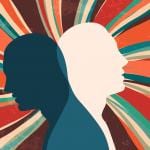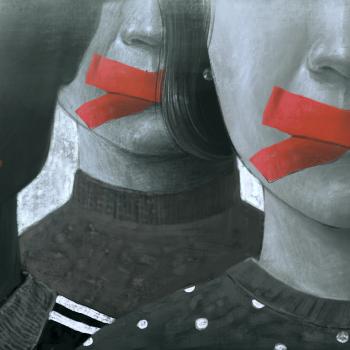Some interesting battle lines have formed in the past few months.* We Americans had gotten used to thinking of ourselves as polarized between the Blue Tribe and the Red Tribe. But in recent years, decidedly illiberal factions have calved off from both these tribes, giving rise respectively to the identity-politics left and the populist right. In response, a growing chorus of old-school liberals have begun urgently defending the values and commitments of liberalism: free speech and debate, individual rights, procedural neutrality, the search for objective truth. For example, a group of liberal centrists recently founded a newsletter, Persuasion, to advance liberal (not leftist) arguments in defiance of rampant ideological purism. But as revolted by illiberal mobs of both extremes as I am, I can’t help wondering whether the defenders of classical liberalism are missing something, too. People need tribes and culture – things that liberalism tends to dissolve. Yet liberalism is vastly superior to its alternatives. Where can we go from here?
When I say that people need tribes and culture, I don’t just mean we need society. People obviously need companionship and society – we’re social beings, and loneliness is quite literally toxic to us. That’s not in question. What’s in question is whether people need the determinate, particular culture of a specific bounded group of people. Liberalism has historically tended to hem and haw at this question, arriving in its more generous moments at something like “Well, maybe they do, but it’s not the political community’s job to give it to them.” In its less charitable moods, though, liberalism considers particular cultures and bounded groups to be actively opposed to its project, and acts to undermine them. Attempts by European countries to outlaw infant or childhood circumcision, an age-old custom for Jews and Muslims, are an example of this more uncompromising stance.
Justin E.H. Smith, a philosopher, recently championed the universalist liberal view in Persuasion. Arguing against leftists who accuse people of “cultural appropriation” when they borrow artistic techniques or fashions from other cultures, Smith rejoins that too much emphasis on cultural particularity is dangerous. In fact, it’s not just dangerous, it’s factually erroneous, because humans everywhere are more similar than they are different:
All human beings are the product of the same evolutionary forces. We all have the same brains, and the same mortal bodies, more or less, and we all inhabit the same natural world. A return to an unafraid universalism regarding human nature would require us to pay attention to the ways in which the history of culture as an idea has contributed to our fragmentation.
Smith doesn’t believe that there’s no such thing as cultural differences; he just thinks we’re emphasizing those differences too much, in part by illegitimately reifying the very idea of “culture.” After all, cultures bleed into each other all the time. Italians received pasta from China and tomatoes from the Americas. Given the constant transfer, borrowing, and intermarriage between different groups, maybe “culture” isn’t really a very useful concept. Many cognitive anthropologists, such as Washington University’s Pascal Boyer, would agree, seeing culture simply as a fuzzy term we use to describe the practices, skills, languages, and technologies that individual people pick up from one another through social learning.
But another viewpoint would see these deflationary critiques as rejiggered expressions of liberalism’s age-old discontent with cultural particularity. This discontent shows up sometimes in academic rejections of “culture” as a coherent concept, but more pointedly in liberal society’s now-hot, now-cold hostility toward ritual, religion, authority, and communalistic traditions of all kinds. For diehard liberals, sometimes culture doesn’t exist. But more often, it’s threatening.
The seemingly inherent conflicts between liberalism and older cultural traditions have led some traditionalist conservatives, such as the Catholic social critic and Notre Dame professor Patrick Deneen, to argue that our current illiberal moment is actually the natural endpoint of liberalism itself. Since liberalism (in his view) values individual liberty and freedom from tradition above almost everything else, it eventually reaches a point at which it can no longer tolerate any traditional restrictions on individual liberty whatsoever, including – for example – dichotomous gender roles or the transmission of religious identities to children who are “too young” to make their own commitments. What results is a massive, sustained effort to stamp out all forms of community that are binding and unchosen rather than renegotiable and contractual. Liberalism transmogrifies into a ruthless campaign to exterminate obligation.
Deneen’s right-wing critique of liberalism draws on Aristotelian moral philosophy to argue that people only learn how to be virtuous (read: good, fulfilled people) by living as members of societies that demand things of them. End-stage liberalism, because it refuses to demand anything of anyone (since to do so would undercut personal autonomy), winds up eating away its own foundations. Deneen’s critique sees the illiberal left, with its obsessive focus on marginalized identities, open borders, and ending incarceration, as the final irruption of the ultimately tyrannical hatred for limits and hierarchies that liberalism harbored all along.
Left Wing, Meet Right Wing
Some book-smart conservatives are disillusioned with liberalism? It must be a day ending in “y.” But don’t forget the paradoxical twist that spooked centrist liberals into founding Persuasion in the first place: many of today’s most vociferous leftist activists also oppose liberalism, perceiving it as a hegemonic expression of European colonialism rather than as a universal, liberating bequest to all humankind. But in their bitter rejection of Enlightenment universalism, many leftist activists are ironically grasping for the very same thing that right-wing populists like Deneen dream of: a thick, particular culture, rooted in a living tradition, that provides an authentic source of identity.
That is, both right-wing populists and antiliberal left-wingers see liberal Western culture as hostile to real human needs for community. Marimba Ani, an Africanist professor and radical activist, wrote in an influential 1994 book that European or “white” culture
is the only culture that provides little or no source of spiritual or emotional well-being for its members. It carries little tradition of insight into the human spirit and virtually no knowledge of the human soul. It is atrophied toward non-human realities. European culture presents the individual it produces with only the alternatives of materialism, scientism, and rationalism, when what she needs is the inner peace that comes with…emotional identification with other people.
In other words, this early trailblazer of radical Afrocentric activism – a major tributary running into today’s illiberal leftism – makes almost exactly the same criticism about Western culture that Patrick Deneen and other conservatives make about liberalism. In the Catholic magazine First Things, Deneen complains that, in the liberal milieu,
gratitude to the past and obligations to the future are replaced by a near-universal pursuit of immediate gratification: Culture, rather than imparting the wisdom and experience of the past toward the end of cultivating virtues of self-restraint and civility, instead becomes synonymous with hedonic titillation, visceral crudeness, and distraction, all oriented toward promoting a culture of consumption, appetite, and detachment.
The vocabularies of these two thinkers differ by miles – Ani rejects the Aristotelian language that Deneen, true to his conservative Catholicism, wouldn’t give up at gunpoint – but their arguments run along parallel tracks. Both see the liberal West as an alienated, materialistic civilization that denies the need for community and commitment, ignores the spiritual dimension of life, and reduces human beings to deracinated atoms, neither owing nor expecting true solidarity to or with anyone. Both call for a return to deeper, thicker kinds of human community alongside a more decentralized power structure, with Ani advocating African and indigenous freedom and Deneen calling for a much more localized (and, for him, ideally Christian) politics.
I’m not saying that these two thinkers are staunch allies. I’m fairly sure that Ani would be horrified by the reinvigoration of classical Christian culture that Deneen calls for. And somehow I doubt Deneen would sign up for Ani’s program of revolutionary Africanism. My point is only that, as many defenders of liberalism, such as the editors of Persuasion, have bemoaned, liberalism is currently beset by serious critics on both the left and the right.
The Disillusionment of Liberal Societies
But unlike many centrist defenders of liberalism, I think we should take both Deneen and Ani (stand-ins for right-wing populists and leftist activists respectively) seriously. Despite its material wealth and technological prowess, our liberal Enlightenment civilization really is not very good at meeting many of our most basic human psychological and social needs. Today’s right-wing populism and left-wing revolutionism are both symptoms of this deficiency.
The late political scientist Robert Lane’s 2000 book The Loss of Happiness in Market Democracies surveyed this weakness across many spheres of society – economy, family life, politics – and concluded that liberal market democracies were, as Ani polemically accuses, too focused on purely material goals. (Twenty years later, I doubt Lane would think much had changed on this front.) This materialism in turn leads to attenuated relationships, loneliness, and alienation, resulting in less actual happiness in rich democracies than one would expect:
there is a spirit of unhappiness and depression haunting advanced market democracies…a spirit that mocks the idea that markets maximize well-being under benign governments of people’s own choosing. The haunting spirit is manifold: a postwar decline in the United States in people who report themselves as happy, a rising tide in all advanced societies of clinical depression…a tragic erosion of family solidarity and community.
Religion as Culture
The ever-growing data on religion and health, an area where I’ve done research, circumstantially corroborates this assessment. Religious people – especially those who actually attend public services – consistently report slightly better psychological well-being, suffer from fewer cardiac problems, and live longer than nonreligious people. But much of this effect reduces, statistically, to the fact that religious people simply enjoy more social support than nonbelievers. In other words, religious communities make people happier and more healthy primarily because they’re, well, communities.
But as I said above, people need more than just social companionship: they need culture. Of course, “culture” is a hotly contested concept. Sometimes it’s characterized as a shared mental world that complements the more objective realm of “society,” which is just an association of people. But when I talk about culture I mean more than just symbols, language, myths, and beliefs. I also mean rituals, practices, roles, and expectations: the total way of life of a society, which inevitably includes religion. The evidence suggests that culture in this sense fulfills a number of important human needs in a way that nothing else seems able to do. A partial list of these needs might include roles and identity, transmission of skills, and self-regulation. I’ll briefly highlight how culture relates to these needs.
1. Roles and Identity
Lacking a culture or community doesn’t just make us lonely; it denies us the experience of having a function. The developmental psychologist Erik Erikson argued that psychological maturation – becoming fully developed – is inextricably bound up with the normative roles we learn to play as we enter adulthood:
The community supports…development to the extent to which it permits the child, at each step, to orient himself toward a complete “life plan” with a hierarchical order of roles as represented by individuals of different age grades.
Erikson wrote that each individual needed to inhabit recognized social roles as part of the life plan. But some societies have medicine men and arrow fletchers, others have schoolteachers and factory foremen. To play a role, you have to be fluent in the cultural norms and expectations of your particular society. A cultureless society can’t easily provide the conditions for inducting people into psychologically meaningful roles, because meaningful roles are by definition the products of cultural agreements. In other words, a role isn’t real until others acknowledge it – which requires sharing a culture.
2. Transmission of Skills
Human beings come psychologically equipped to voraciously learn from, imitate, and absorb knowledge from each other. Most of our essential skills aren’t hard-coded in our DNA. We have to become enculturated in order to develop them. This means carefully observing and copying others as they carry out vital tasks: fletching arrows, carving out a canoe, taking apart a motor. This exacting “over-imitation” allows us to pass down a limitless variety of technological traditions, preserving insights and techniques that no single person could ever stumble upon unaided.
In this cumulative culture, each generation receives know-how from its forebears. Sometimes, a particularly creative person adds something new to it. The good innovations stick around, so that the body of knowledge and techniques slowly grows over time. Ironically, then, it’s our extreme conformism when it comes to learning from our elders that enables our uniquely human knack for technological innovation. Without that chain of continuity between generations, we’d have to reinvent everything – tools, hunting techniques, skills for cooking, you name it – anew from scratch.
3. Self-Regulation
Self-control is a hard thing to master. The famous marshmallow experiment exemplifies this struggle. Children are placed in a room with a single marshmallow on a plate in front of them. The experimenter announces that she’s going to leave the room for fifteen minutes. The child is free to eat the marshmallow during that time – but if the marshmallow is still on the plate when the experimenter returns, the child can have another marshmallow as a reward. In a famous version of the marshmallow experiment, children who were able to wait the full quarter-hour were found later in life to have higher SAT scores, more psychological resilience, and stronger academic records than kids who gave into temptation.
But self-regulation isn’t just a matter of good genes. It can be learned and practiced over time, and the demands and obligations that cultures impose on their members are crucial tools for this learning process. Obligations by definition refer to later points in time, since their rewards or consequences are social in nature and delayed from the moment of decision. If you skip out on practice tonight, the fallout doesn’t come until the big game two weeks later, when you can’t remember the play that everyone else has mastered. In this way, roles, rituals, and obligations force us to practice thinking about the long-term, often iterated consequences of our decisions in the here and now, thereby extending our time horizon. The “religious” aspects of culture build the social and cognitive muscles for exercising willpower.
The Enlightenment and Culture
But liberal society promotes freedom and personal autonomy to the exclusion of the cultural and religious solutions to such uniquely human needs. It’s hard to use role obligations to catalyze self-regulation when roles are fluid and never pinned down. Mistrust of authority and tradition interferes with the ability to transmit inherited skills or narratives.
What many defenders of liberalism haven’t grasped is that these needs aren’t just desirable but ultimately optional icing on the the materialist cake of well-being. The truth is that humans, as biological organisms, are simply not equipped to live life without cultural inputs that provide comprehensible, normative roles for governing behavior, that inculcate complex skills, and that build the capacity for self-control. A society that fails to provide these things will produce disorganized, unhappy members who feel little loyalty to it, and who are moved by only the weakest commitments to its defense or perpetuation. In fact, they might even actively turn against it. Sadly, this recipe describes contemporary liberal societies all too well.
Yet despite its fumbling inability to furnish the all-important goods of culture, liberalism really does offer profound gifts. Its emphasis on individual liberty frees us from irrational authority, provides the perfect conditions for science, and has facilitated an unprecedented equality of the sexes. The Enlightenment values of empirical evidence and good-faith debates over ideas are some of the most powerful tools ever discovered for improving human well-being. They overcome tribal biases to reveal objective truths about how things work. They work because they’re universal.
This universality, however, is exactly why liberal societies flail when it comes to guiding people through life. When critics like Ani or Deneen object to the hollowness and alienation of liberal (or “Eurocentric”) civilization, they’re giving voice to the inescapable human need for belonging to a particular cultural group, one that passes down its own unique language, skills, and identities, and which demands meaningful sacrifices from its members. But any particular culture will, by definition, be exclusive to itself. As Erikson writes,
the counterpart of intimacy is distanciation, i.e., the readiness to repudiate, to ignore, or to destroy those forces and people whose essence seems dangerous to one’s own. Intimacy with one set of people and ideas would not be really intimate without an efficient repudiation of another set.
In other words, human beings need to live and grow within specific, bounded cultures in order to thrive. This is a tremendously inconvenient fact for defenders of Enlightenment values and secular reason. It turns out that to really gain the benefits of belonging to a culture, you have to pick one culture.
The Big Picture
Liberalism is, in part, the legacy of the terrible wars of religion that erupted in the wake of the Protestant Reformation. Realizing that Protestants and Catholics were never going to resolve their theological differences, European elites decided to essentially bracket those questions, reorienting public society toward those things that everyone shared in common – markets, the quest for wealth, the benefits of science and technology. In time, this shift to materialism and privatization of religion gave rise to an active disdain for cultural differences of all kinds, a desire to see the whole world liberated from the shackles of tradition. Centuries later, angry Africanists like Ani and right-wing populists like Deneen are the result.
We face a very interesting and thorny problem as we peer into the uncertain decades ahead. The ideological foundation for our entire globalized society is suddenly unsteady on its feet. Defenders of the Enlightenment chalk up rebellions against liberalism to human ignorance and fear. But the anti-liberals are expressing a core human need, one that has been systematically squashed for decades. The danger is that, as the pendulum swings, we’ll re-tribalize, splintering back into countless subdivided tribes that share little in common. Living in such cozier, more coherent tribes might benefit us psychologically, but it would be a death knell for civilizational science and nation-state democracy. How to recover the goods of real, unapologetic, particularistic culture without throwing away the tremendous advances of the liberal era is the challenge that looms on the horizon.
_____
* Those darn apocryphal Chinese curses!













